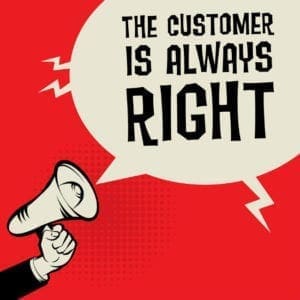During my time as an inspector of fine hotels, the emphasis of the post stay feedback sessions with General Management gradually shifted. When I began over eight years ago, the first thing that a GM wanted to know was, “What did we score?”. Over the course of almost five hundred consultations, I was increasingly being asked another question, and that is, “How did you feel?”. A fluffy and subjective enquiry over objective, black and white results, you say? Not so. Other than simply demonstrating some good old fashioned care and pride, savvy management know that consumer decisions are driven by emotions. The most important guest decision that the hotelier can influence is of course, “Will I return to, and recommend this hotel?”.
On the assumption that you might retain or lose a guest on the basis of how they were made to feel, what steps can be taken to impact that feeling? As humans, we have an underlying desire to be understood, a principle that is especially important in hospitality. Some guests want to talk about the weather or tourist sights, others will prefer an efficient service delivery without intrusion. Some will expect a culinary recommendation, want to know the provenance of their fish and the name of the chef, others will know their choice already and expect it to be delivered quickly with zero fuss. Some will want their wine glass topped up, others won’t. Some won’t notice if the waitress fleetingly rolls her eyes when the guest is still deliberating between the scallops or the tuna tartar, others most certainly will. So let’s start changing the way we approach our guests. Yes, know the standards, but remember that there is no such thing as a standard guest.
Service with empathy
Rather than the seemingly common practice of focusing on wowing guests with extraordinary acts or offerings (which invariably have financial and human resource consequences), let’s understand them. Let’s make their life easy and ensure that they have to ask for as close to nothing as possible. Let’s look to put ourselves in their shoes and provide our guests with the service that they want, not that we are pre-programmed to deliver.
Of course I am not implying that standards are not important, or indeed the foundation of good service. And I’m not suggesting that wowing a guest is a bad thing – of course it’s not. However, I do feel that a modus operandi to understand all guests’ individual needs, rather than bowl them over, is more realistic, attainable and impactful. The trait of empathy is fundamental in this quest; the ability as an employee to really experience the situation from the guest’s perspective is invaluable. In a team where there is an underlying sense of empathy, the guest experience is going to improve.
Embrace a language of feeling in your team
With this in mind, how do we go about developing a culture of empathy? The onus lies with management to create an environment in which a language of emotion is commonplace and where front line employees are being engaged with understanding and care by their seniors, and in turn, with each other. Let’s not be afraid to ask each other, “How do you feel?” and perhaps even better, “How do you think Mr. Jones feels” after his experience in the bar, at the concierge, in the spa, at our hotel?
Once this becomes ingrained in the individual and eventually team psyche, the positive impact on the guest experience is a matter of inevitability. This is no gimmick or fad to be tried out for a quarter. It should be consciously practiced and consistently reinforced. The practice does not need to, and should not be, exclusive to work. In fact, the trait of empathy is something that cannot simply be picked up with your uniform and returned at the end of shift. Empathy is but one characteristic under a greater umbrella of Emotional Intelligence, the cornerstone of which is self-awareness. Without self-awareness, we have little or no chance of displaying so many of the other competencies that make up an emotionally intelligent individual. Emotional Intelligence guru Daniel Goleman, the man responsible for bringing the term into common language said:
“If your emotional abilities aren’t in hand, if you don’t have self-awareness, if you are not able to manage your distressing emotions, if you can’t have empathy and have effective relationships, then no matter how smart you are, you are not going to get very far.”
So whilst management should create the right environment and conditions to harvest a culture of emotion, self-awareness starts with you. Therefore, when you get up in the morning, start by asking “How do I feel?”. Contemplate the answer, look to understand what influences those feelings, and think about how those feelings might impact those that you interact with in your day ahead. Do this again during the day and once more at night. Simply by self-assessing on a consistent basis, you are already increasing your-self awareness and becoming more emotionally intelligent. In turn, the benefits will be felt by your colleagues and guests alike.
About the author
is a hotelier and founder of Penshee, a consultancy specializing in Emotional Intelligence and employee engagement in the hospitality industry.
Previously he spent eight years in senior management at London’s Goring Hotel and at top London caterer, Rhubarb, before going on to provide quality assurance to luxury hotels around the world with Leading Quality Assurance.























